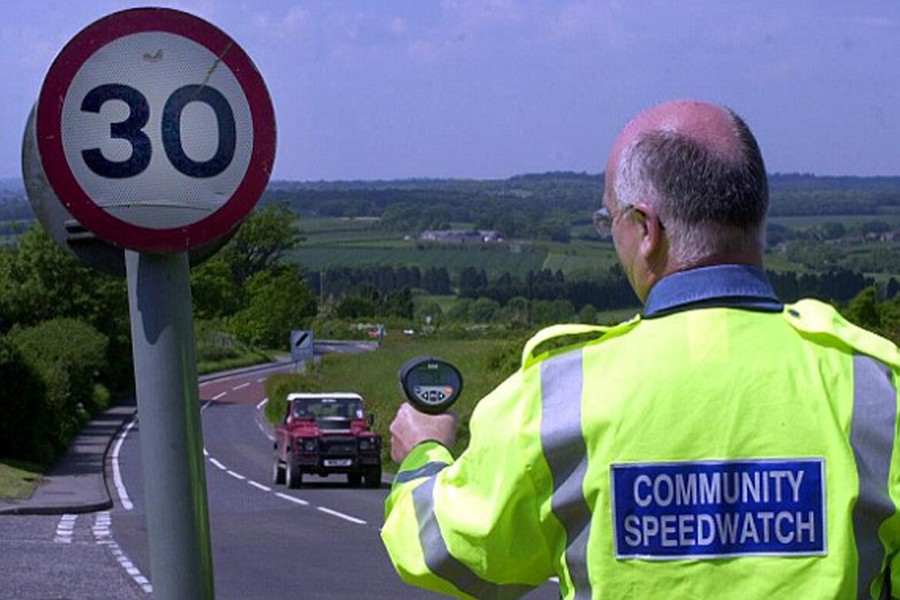A growing movement in the UK is shifting the power of catching speeding motorists from the police, to the people.
"My daughter was going to school and one of her friends was killed by a vehicle," says John Ryan.
"The school assembly that morning when the children were told was terrible. The school didn't recover for about a year. It had a very big impact on the children and particularly my daughter."
Now, 20 years later, the retired bus driver has joined a network of volunteers trying to make the roads safer.
Twice a week, he patrols the area where he lives in west London with a speed gun and two police community officers, noting down car registration details of drivers breaking the limit.
In one spot next to a school, he typically catches 20 vehicles breaking the 20mph limit in a one-hour session. He once caught a car travelling at 45mph.
"It just shows what we're up against as a community," he says.
Every year, about 1.25 million people die in road accidents around the world, and on average, five people are killed on Britain's roads each day. Speed is a contributing factor in around half of fatal road collisions. And the faster a vehicle travels, the worse injuries will be.
Current deterrents for motorists are flawed. Speed cameras create resentment and only work in specific locations. Police with speed guns are effective, but this approach can be a drain on their time.
So passing the baton of the speed gun to John and fellow volunteers could be a solution.
Thousands of people like John are volunteering around the country, in a patchwork of groups, reports BBC.
The group John volunteers with is Community Roadwatch, which Transport for London (TfL) runs with The Metropolitan Police.
There is a crucial difference when volunteers, like John, rather than the police, wield speed guns.
Motorists who are caught simply receive a warning letter from the police telling them that neighbourhood volunteers have recorded them speeding.
The letter contains an educational message and an appeal to their conscience - but no other penalty, no points or fine.
However, if they receive three of these letters, they may get a home visit from a police officer and their vehicle details could be put on a police database.
Of the 35,000 letters it has sent out to motorists in London in the past two years, TfL says only 2 per cent of recipients have re-offended.
A study it conducted in Aylmer Road, in Barnet, north London, suggested that volunteers working for a year were able to bring down the average speed by 11mph, to 31mph - below the 40mph limit.


